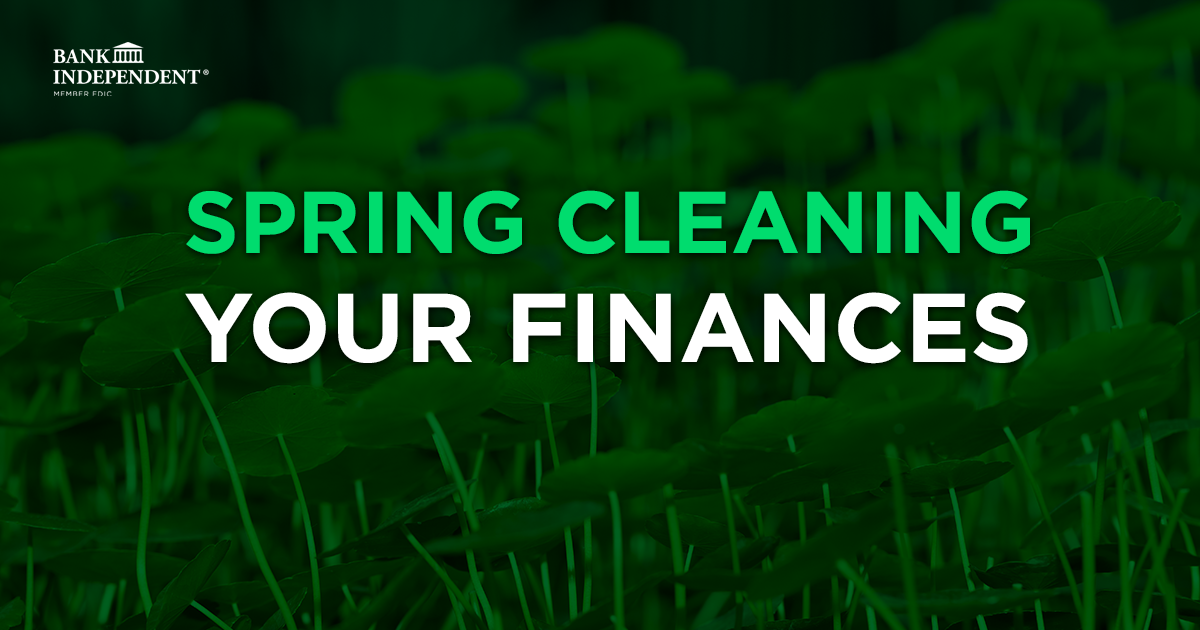
Spring feels like a time for renewal and fresh starts, and why not use that feeling as an opportunity to reassess your financial habits?
Spring cleaning isn't just about getting rid of physical clutter. It's also about finding ways to improve your life and create more joy. So why not take some time to do a deep clean of your finances? Let's look at how you can tackle the financial clutter in your life and make room for brighter financial days ahead.
You don't need to go crazy; we'll look at small steps you can take to improve your budgeting, spending habits, and savings goals.
The Benefits of Spring Cleaning Your Financial Habits
These days, our financial health can often fall by the wayside in the hustle and bustle of everyday life. That's why spring cleaning your finances can feel like such an accomplishment, it's a chance to reset and make sure that your financial goals are on track.
From reducing unnecessary spending to maxing out contributions to retirement accounts, there are several quick wins you can gain from taking a fresh look at your finances. Doing away with outdated habits and replacing them with new ones will give you more control over where your money goes, which in turn could help put you on the path toward achieving whatever financial goal you set for yourself this year.
Moreover, it'll also help ease stress levels and provide a sense of clarity surrounding your personal budget. So why not use the spring season as motivation to give yourself a much-needed boost? And if you're feeling overwhelmed by where to begin, start with small changes or seek out advice from an expert. The important thing is that you take that initial step towards bettering your financial habits this spring.
Ways to Refresh Your Financial Planning
It's possible to give your finances the same spring cleaning you would your house or apartment. Just take a few simple steps and you'll be on your way to fresher, healthier financial planning.
One thing you should do is review your retirement savings. Check that your contributions are at optimal levels, you may even want to add a bit more if you can. Look at the fees associated with your savings account and other investments if you have them. Make sure that any new investments you're looking into make sense for your goals.
Another step could be to make sure that any debt from last year has been taken care of, or at least reassessed, especially if the interest rates have changed since then. Consider refinancing higher-interest debt like student loans or credit cards if it would lower your monthly payments and help get you out of debt faster.
Finally, set some realistic financial goals for yourself this year. Having 3-5 goals will help keep you on track and motivated through the rest of the year, so choose wisely!
Strategies for Reducing Debt
Nobody likes debt and cleaning up your financial habits could mean tackling credit card debt head-on. Here are some strategies for getting rid of those unsightly statements so you can start feeling good about achieving your money goals:
Create a Budget
Creating a budget is the first step in understanding where you're spending your money. Once you have the data, it's time to break down how much money is going toward debt repayment, and what amount is leftover for other expenses. Doing this will let you get creative about finding ways to cut back on expenses and put more of that extra cash toward debt repayment.
Prioritize Debt Payments
Once you have a budget in place, identify loans with the highest interest rates, as those are typically costing more than others. Make paying off that debt a priority each month. As you pay off loans with higher interest rates first, you'll save more in the end by not having to pay so much toward interest payments over time.
Refinance Loans
If your current loans have high-interest rates or long-term maturities, consider refinancing them into one loan with a better rate or shorter term. This could be beneficial when it comes to reducing your overall debt load. Oftentimes, refinancing could help reduce the amount of interest paid and cut back on monthly payments.
Banishing debt from your life doesn't have to be difficult; using these strategies can help make it easier and swifter for reducing what may feel like an overwhelming balance!
Automating Your Finances
One of the key steps to spring-cleaning your finances is automating them. This can help you avoid late fees, ensure that bills are paid, and help you reach your financial goals faster. Automation also helps to reduce the number of times you have to manually enter payment information and provides an easy way for you to keep track of all your accounts.
Here are some ways you can automate your finances:
- Set up auto-pay: Automatically pay bills from a linked bank account or credit card each month, so you never forget a payment or incur an unnecessary late fee again.
- Link your accounts: Connecting all your bank and credit cards into one interface makes it easy to view all account activity and track spending in one place.
- Set aside money automatically: Schedule automatic transfers each month into multiple savings accounts for specific goals, like travel plans or an emergency fund.
- Invest: Take advantage of compound interest and take the effort out of investing by setting up recurring investments in things like mutual funds or exchange-traded funds (ETFs).
Automating your finances can be a great way to make sure your financial goals stay on track over the year, with no extra effort from you!
Understanding Credit Scores
You might not know the ins and outs of how credit scores work but understanding them is essential for improving your financial health. Credit scores are three-digit numbers ranging from 300 to 850 that represent your creditworthiness. They're largely based on your payment history, the amount of debt you have, and the length of your credit history.
Lenders, landlords, and insurance companies use credit scores to decide whether to lend or insure money. If you don't know your credit score, now's the time to check it!
Ways To Keep Your Credit Score High
- Pay bills on time: Whether it’s a loan, mortgage, or even a utility bill, making payments before they’re due is key to maintaining an excellent credit score.
- Don't max out available credits: It's best to keep balances low relative to your total available credit limit.
- Monitor new requests: Too many inquiries into your credit can negatively affect your score, so make sure to know who is looking at it before you apply for anything else.
- Keep unused accounts open: Closing old accounts will reduce the average age of your accounts which can also lower your credit score.
- Monitor for fraud and errors: Make sure all reported information about you is accurate, this includes loans, accounts, balances, and payment status reports too.
Understanding how our credit score works can help us improve our financial habits and make sounder decisions when it comes to our finances!
Spring cleaning your finances is an invaluable task and one that is best started with a clear plan of attack. Assess your financial habits and how they can be improved, reduce unnecessary spending, and look for ways to save in the coming months. Put systems in place to help you stick to your goals. And lastly, be kind to yourself. Financial success isn’t about living an ascetic lifestyle, it’s about finding a balance that lets you live on your terms. Give yourself permission to indulge from time to time, and as you do, celebrate your progress. Out with the old, in with the new.

